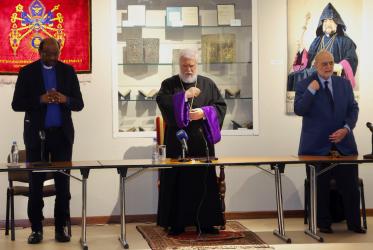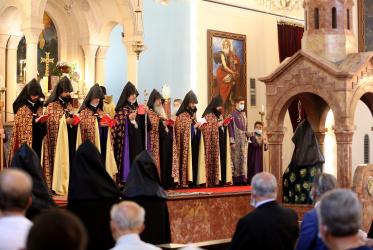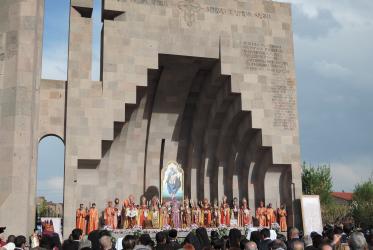Displaying 1 - 17 of 17
In Lebanon, “without peace there is no justice”
21 July 2021
Palestinian Christian peace worker yearns for courageous leaders
10 December 2020
The child in the manger and the war in Syria
22 December 2016
‘No Christmas bells in Mosul’ for a third year, says Assyrian priest
14 December 2016
In Syria and Iraq, minorities must come out of the darkness
28 November 2016
Common prayer in Geneva responds to acts of violence
16 November 2015
Reflections on the destruction of the Armenian church in Deir Zor
05 November 2014
Church leaders call for justice and peace in Syria
13 June 2014
Echos members stress meaningful engagement of youth in the churches
04 November 2011








